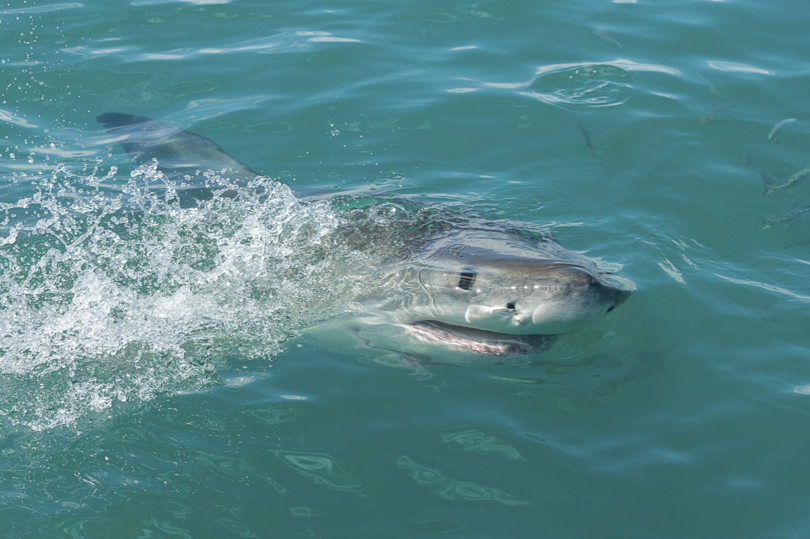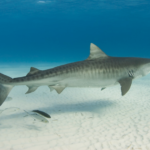Because it’s #SharkWeek–get to know the apex predators of the marine world on a deeper level!
Sharks are strategic hunters
Great white sharks have learned to use different hunting strategies for different prey. At Mexico’s Guadalupe Island, white sharks have learned to attack giant elephant seals from the rear to avoid their sharp canines, and to retreat while their prey bleeds out to avoid a struggle. But when attacking smaller harbor seals, they simply pluck them from the surface and drag them down until they suffocate.
Sharks learn from their mistakes
Great whites aren’t born knowing how to hunt seals. They have to learn. At South Africa’s Dyer Island, young great whites are often seen clumsily attacking their prey, and usually missing. After years of practice, they eventually “graduate” to hunting at nearby Seal Island, where old veterans like Colossus have a 48% success rate when attacking seals at the surface. Sharks don’t give up; they learn through trial and error.
Sharks socialize with one another
Competition for prey can be fierce, so white sharks have worked out a clever social ranking system to avoid costly fighting. Specific behaviors like circling, fin flapping and tail thrashing are some of the ways that white sharks have learned to establish dominance or contest kills without resorting to violence.
Sharks are curious, perhaps even playful
Sharks are curious creatures. They commonly approach divers and boats to investigate in a non-threatening way. Sharks mouth or take test bites of potential prey to get a better sense of what they are; in fact, most sharks attacks are simply test bites. Sharks may also play; porbeagles seemingly playing with kelp and driftwood, and great whites have been observed tossing live seals repeatedly into the air.
Sharks work together
While we think of sharks as solitary creatures, they do occasionally band together. Sevengill sharks work together to encircle their prey; one will play decoy while another attacks from behind. Whale biologist Peter Best reported seeing a group of white sharks working together to move the carcass of a beached whale into deeper water so that they could more easily feed on it, suggesting they also understand the basics of flotation.



